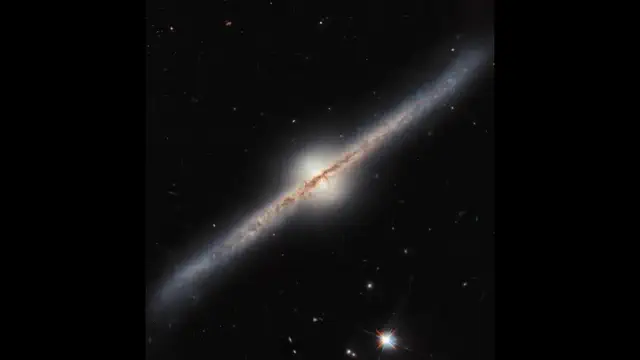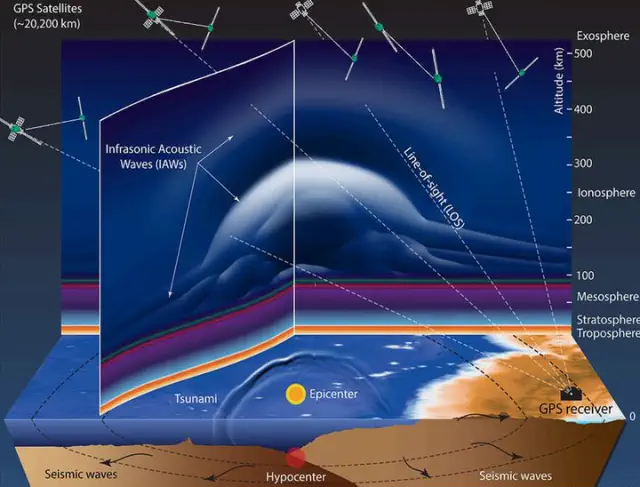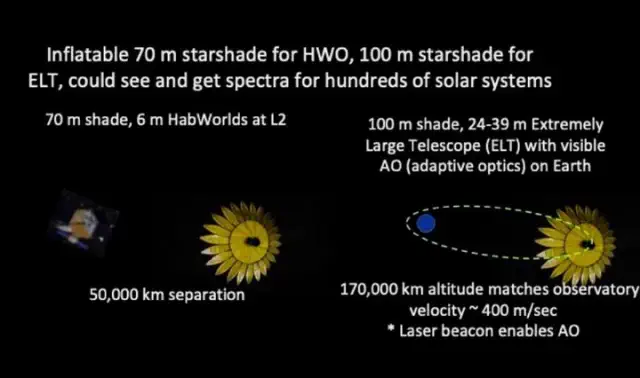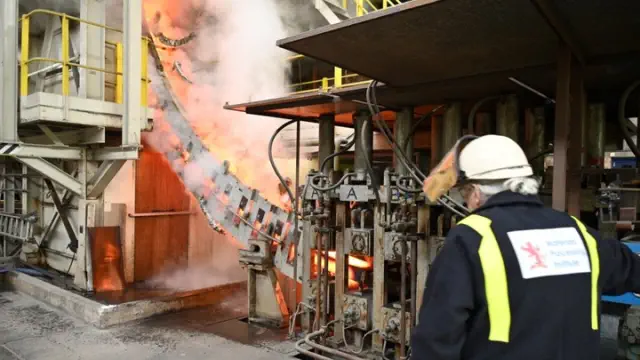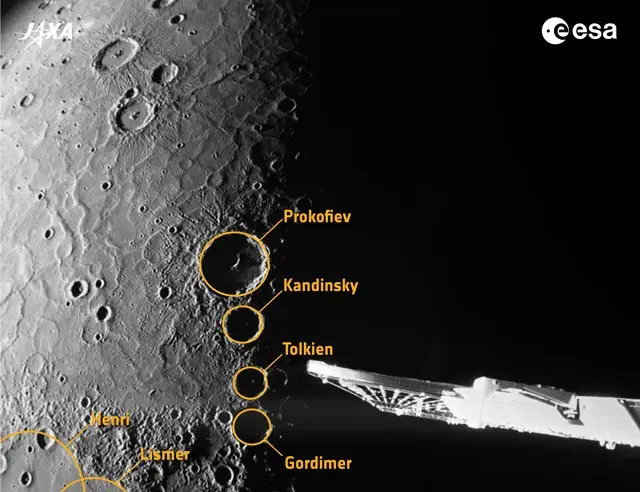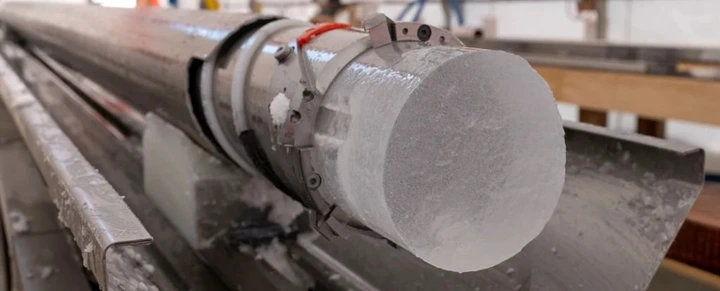
View pictures in App save up to 80% data.
A massive ice core sample extracted from Antarctica could hold the most ancient, continuous record of Earth's climate, extending over a million years into the past.
If laid out flat, the complete length of the ice core, measuring 2,800 meters (9,186 feet), would stretch beyond the Golden Gate Bridge in San Francisco.
Each meter-long segment contains up to 13,000 years of deep, compressed history, including bubbles of ancient air. Together, the evidence provides a baseline for our current climate crisis, and it could reveal more about past extreme climate change events that threatened human survival.
"We have a strong indication that the uppermost 2,480 meters contain a climate record that goes back to 1.2 million years," says Julien Westhoff, chief scientist on the ground for the European Project for Ice Coring in Antarctica (EPICA).
More analysis is required, but there is a possibility that the deepest sections of the drilling may hold ice from the pre-Quaternary era, which is over 2.5 million years old.
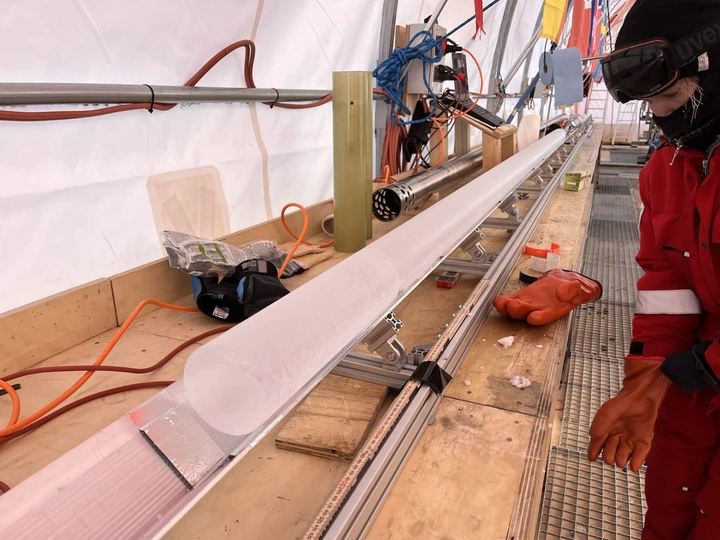
View pictures in App save up to 80% data.
The oldest ice uncovered in Antarctica so far dates back 2.7 million years, but Earth's movements pushed this ice into a shallower patch of frozen material, so it doesn't provide a continuous climate chronicle; it's more of a snapshot.
Previously, the EPICA record for the oldest vertical ice core covered the last 740,000 years or so, and it was obtained in 2004.
Ice cores are precious to scientists, because they trap particles, water isotopes, and bubbles of atmospheric gases, like carbon dioxide and methane. This allows researchers to reconstruct climates and environments in our planet's history.
Recent drilling efforts in East Antarctica reveal information about a timeframe during which the Earth's glacial cycles unexpectedly extended, occurring between 900,000 and 1.2 million years ago.
Some scientists suspect nearly 99 percent of early humans in Africa may have died out during this period of extreme cold swings, although that hypothesis remains contentious and is mostly based on modern genetic data.
The newly retrieved ice core from Antarctica has the potential to uncover further insights into Earth's climatic changes during this period. Additionally, it is likely to validate the extent to which human-induced emissions have disrupted the planet's natural glaciation cycles.
"This transition remains a scientific mystery, particularly regarding the role of greenhouse gases and ice sheet dynamics," Carlo Barbante, director of EPICA, told CNN.
"This information allows us to grasp the complex connection between greenhouse gases and global temperatures spanning hundreds of thousands of years, extending now to 1.2 million years and potentially further."
The extraction site of the recent drilling is called Little Dome C, in East Antarctica, and it was chosen because radar surveys revealed the presence of extremely thick ice here, layered like a cake, with a bottom that had not yet melted away.
At 3,200 meters above sea level – high on Antarctica's central plateau – summer temperatures on Little Dome C sit around -35 ºC (-31 ºF) and often there are high wind speeds to contend with as well.
Researchers at EPICA, including scientists from the British Antarctic Survey, had their work cut out for them. It took about 20 days just to deliver all their infrastructure and cargo to the site from a nearby research station.
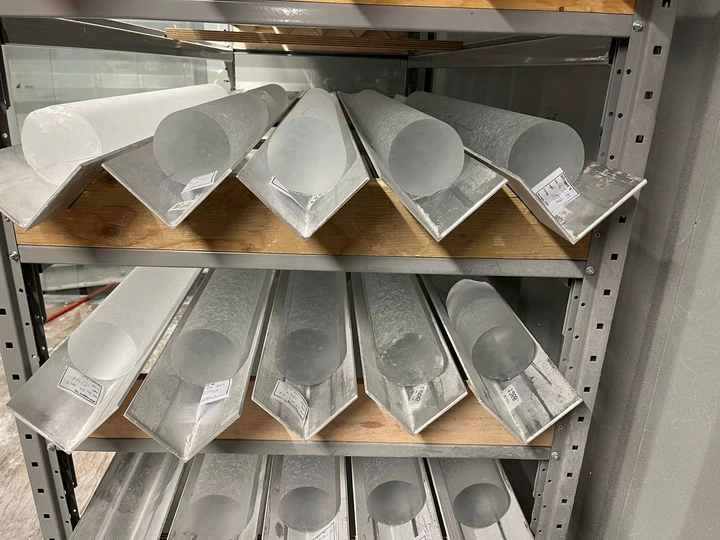
View pictures in App save up to 80% data.
As drilling commenced, an isotopic analysis system was capable of detecting glacial and interglacial cycles nearly instantly, with each segment of the ice core being retrieved from the earth. This is the reason why researchers at EPICA are making significant assertions so early in their study.
Today, the Antarctic ice sheet holds 90 percent of our planet's ice. A drilling like this one, straight from its belly, could reveal just how Earth's southernmost continent came to hog most of its freshwater.
Climate scientist Richard Alley, who was not involved in the recent drilling effort, told the Associated Press that EPICA's ice core was "truly, truly, amazingly fantastic."
Alley forecasted, "They will discover amazing knowledge."



